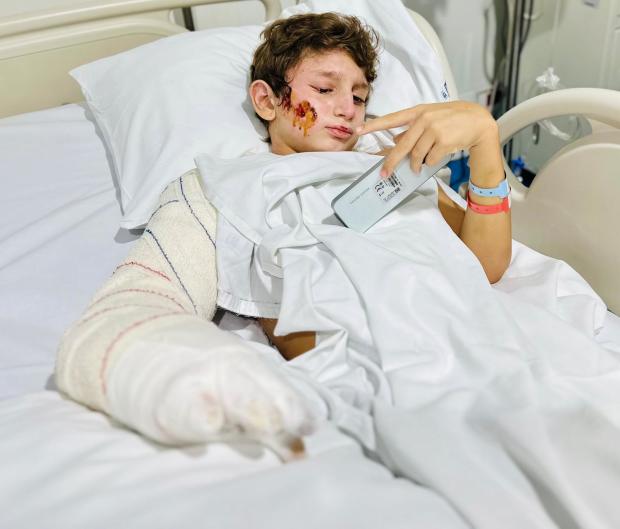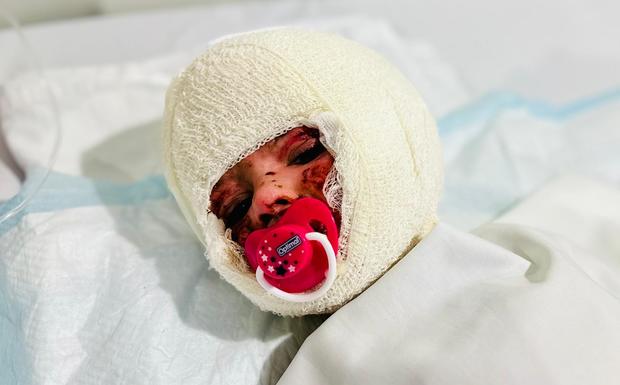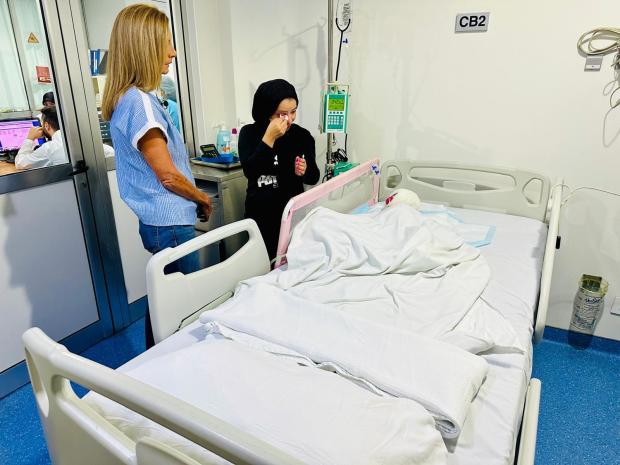
Israel’s proxy war with Iran leaves young children in Gaza and Lebanon burned from head to toe
Beirut and Gaza — Displaced Palestinians in a tent camp outside the Al-Aqsa Martyrs Hospital in central Gaza woke up in the early morning hours Tuesday to a blazing inferno after an Israeli airstrike. The flames spreading quickly from tent to tent. Civilians who’d sought shelter in the camp said there was only one fire extinguisher to try to quash the blaze.
Residents and rescue workers scrambled to rescue people from the flames, but they could not save Shaaban Al-Dalou, who was burned alive.
His father Ahmed Al-Dalou also suffered agonizing burns, but it’s guilt that was eating him alive when CBS News met him on Wednesday, several days after the strike.
Al-Dalou said that as flames tore through the camp, he found himself faced with an impossible choice.
war with Hamas’ allies Hezbollah in Lebanon, the death toll is also rising. Israeli jets continue to pound southern Lebanon and, despite the U.S. voicing concern over the bombing campaign in the capital city of Beirut, there was a fresh series of strikes around the capital Wednesday.
Hezbollah, which, like Hamas, is backed by Iran, has vowed to strike deeper inside Israel after a year of rocket and drone attacks aimed at the country. Israel says Hezbollah has launched well over 10,000 weapons since Oct. 8, 2023. While most are intercepted, a drone did get past Israel’s air defenses about four days ago to hit a military base in the center of the country, killing four soldiers and wounding dozens of other people.
The Israeli military has vowed to keep striking Hezbollah strongholds in Lebanon, and it says it only targets the group’s weapons and fighters, but the Lebanese health ministry says the strikes have killed more than 2,300 people over the last month or so, wounded some 11,000 more, and forced hundreds of thousands of people to flee their homes.
CBS News visited the only Lebanese hospital with a full burn unit this week, and found it had tripled its usual number of beds to cope with the number the casualties coming in.
Like many youngsters, 11-year-old Hamoodi seemed unable to tear his eyes away from his phone. It was helping take his mind off the burn wounds covering one side of his body.
CBS News/Agnes Reau
The phone is also his only connection to his mother, who was being treated in another hospital. They were both injured in an Israeli airstrike. As he sat there scrolling, Hamoodi still didn’t know that his father and brother were killed in the attack.
His aunt Jamal Ibrahim said he was asking for them, but she was worried the news could be too much for the boy to bear.
The war’s youngest victims are particularly difficult for Nurse Ali Humaida.
“It’s terrible to see children in pain,” he said, “especially when there isn’t much we can do.”
Already, tiny Yvana, just 21months old, has learned to dread the men and women in blue scrubs.
CBS News/Agnes Reau
She’s wrapped in bandages that cover severe burns, from head to toe. The slightest touch is excruciating, but the bandages must be changed regularly.
Her mother Fatima Zayoun told CBS News their house was hit by a rocket more than three weeks ago.
“I saw my daughter on fire,” she said.
The mother has been inconsolable since that day.
CBS News/Agnes Reau
“I don’t care about anything,” she said. “I just want her to get better.”
CBS News Marwan al-Ghoul contributed to this report.
More
More
Source: cbsnews.com


